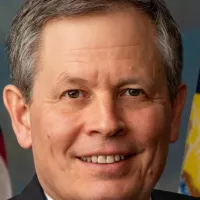December 01, 1897
Stevens retired on June 29, 2010, as the third-longest-serving justice in the history of the Supreme Court with 34 years and six months of service and just three days short of tying the tenure of the second-longest serving justice in history, Stephen Johnson Field, who had retired on December 1, 1897. The longest-serving justice is Stevens's immediate predecessor, Justice William O. Douglas, who served 36.mw-parser-output .frac{white-space:nowrap}.mw-parser-output .frac .num,.mw-parser-output .frac .den{font-size:80%;line-height:0;vertical-align:super}.mw-parser-output .frac .den{vertical-align:sub}.mw-parser-output .sr-only{border:0;clip:rect(0,0,0,0);clip-path:polygon(0px 0px,0px 0px,0px 0px);height:1px;margin:-1px;overflow:hidden;padding:0;position:absolute;width:1px}1⁄2 years and retired on November 12, 1975. He was the last sitting Supreme Court justice to serve on the Burger Court.
April 20, 1920
John Paul Stevens (April 20, 1920 – July 16, 2019) was an American lawyer and jurist who served as an associate justice of the Supreme Court of the United States from 1975 to 2010. He was the second-oldest and third-longest-serving justice in U.S. Supreme Court history. At the time of his death in 2019 at age 99, he was the longest-lived Supreme Court justice ever. His long tenure saw him write for the Court on most issues of American law, including civil liberties, the death penalty, government action, and intellectual property. Despite being a registered Republican who throughout his life identified as a conservative, Stevens was considered to have been on the liberal side of the Court at the time of his retirement.
April 20, 1920
Stevens was born on April 20, 1920, in Chicago, Illinois, to a wealthy family from Hyde Park. His paternal grandfather had formed an insurance company and held real estate in Chicago, and his granduncle owned the Chas A. Stevens department store. His father, Ernest James Stevens (1884–1972), was a lawyer who later became an hotelier, owning two hotels: the La Salle and the Stevens Hotel. The family lost ownership of the hotels during the Great Depression, and Stevens's father, grandfather, and an uncle were charged with embezzlement; the Illinois Supreme Court later overturned the conviction, criticizing the prosecution. His mother, Elizabeth Street Stevens (1881–1979), was a high school English teacher. Two of his three older brothers also became lawyers.
January 12, 1932
Stevens was also the second-oldest justice, at age 90 years and two months at retirement, behind Oliver Wendell Holmes Jr. who retired at the age of 90 years and 10 months on January 12, 1932. On July 23, 2015, Stevens became the longest-lived retired justice, surpassing Stanley Forman Reed who died at age 95 years and 93 days on April 2, 1980.
1937
The family lived in Hyde Park, and Stevens attended the University of Chicago Laboratory Schools where he graduated in 1937. He later attended the University of Chicago, where he majored in English, was inducted into Phi Beta Kappa, and graduated with highest honors in 1941. While in college, Stevens also became a member of the Psi Upsilon fraternity.
1941
He began work on his master's degree in English at the university in 1941 but soon decided to join the United States Navy. He enlisted on December 6, 1941, one day before the attack on Pearl Harbor, and served as an intelligence officer in the Pacific Theater from 1942 to 1945. Stevens was awarded a Bronze Star for his service in the codebreaking team whose work led to the downing of Japanese Admiral Yamamoto's plane in 1943's Operation Vengeance. He also earned the World War II Victory Medal and later received the highest United States civilian award, the Presidential Medal of Freedom, from Barack Obama.
1942
Stevens married Elizabeth Sheeren in 1942. He was on the high court when the couple divorced thirty-seven years later in 1979. Later that same year, he married Maryan Simon; they remained married until her death in 2015. Stevens had four children, two of whom predeceased him. Stevens was a Protestant, and upon his retirement, the Supreme Court had no Protestant members for the first time in its history. He was one of only two Supreme Court justices who divorced while on the Court—the first was William O. Douglas, whom he coincidentally succeeded as an associate justice. Stevens was also an avid bridge player and belonged to the Pompano Duplicate Bridge Club Florida. Stevens was a private pilot who owned and flew a Cessna 172 with the registration number N1688F for almost two decades.
June 1942
Stevens married Elizabeth Jane Shereen in June 1942. Divorcing her in 1979, he married Maryan Mulholland Simon that December; that marriage lasted until Simon's death in 2015 following complications from hip surgery. He had four children: John Joseph (who died of cancer in 1996), Kathryn (who died in 2018), Elizabeth, and Susan.
1945
With the end of World War II, Stevens returned to Illinois, intending to return to his studies in English, but was persuaded by his brother Richard, who was a lawyer, to attend law school. Stevens enrolled in the Northwestern University School of Law in 1945, with the G.I. Bill paying most of his tuition. Stevens graduated in 1947 ranked first in his class with a J.D. magna cum laude, having earned the highest GPA in the school's history.
1949
Following his clerkship, Stevens returned to Chicago and joined the law firm of Poppenhusen, Johnston, Thompson & Raymond (now Jenner & Block). Stevens was admitted to the bar in 1949. He determined that he would not stay long at the Poppenhusen firm after being docked his pay for the day he took off to travel to Springfield to swear his oath of admission. During his time at the firm, Stevens began his practice in antitrust law.
1951
In 1951, he returned to Washington, DC, to serve as associate counsel to the Subcommittee on the Study of Monopoly Power of the Judiciary Committee of the U.S. House of Representatives. During this time, the subcommittee worked on several highly publicized investigations in many industries, most notably Major League Baseball.
1952
In 1952, Stevens returned to Chicago and, together with two other young lawyers with whom he had worked at Poppenhusen, Johnston, Thompson & Raymond, formed his own law firm: Rothschild, Stevens, Barry & Myers. It soon developed into a successful practice, with Stevens continuing to focus on antitrust cases. His growing expertise in antitrust law led to an invitation to teach the "Competition and Monopoly" course at the University of Chicago Law School, and from 1953 to 1955, he was a member of the Attorney General's National Committee to Study Antitrust Laws. At the same time, Stevens was making a name for himself as a first-rate antitrust litigator and was involved in a number of trials. He was widely regarded by colleagues as an extraordinarily capable and impressive lawyer with a fantastic memory and analytical ability, and authored a number of influential works on antitrust law.
1969
In 1969, the Greenberg Commission, appointed by the Illinois Supreme Court to investigate Sherman Skolnick's corruption allegations leveled at former chief justice Ray Klingbiel and then-current chief justice Roy Solfisburg, named Stevens as its counsel, meaning that he essentially served as the commission's special prosecutor. The commission was widely thought to be a whitewash, but Stevens proved them wrong by vigorously prosecuting the justices, eventually forcing them from office. As a result of the prominence he gained during the Greenberg Commission, Stevens became the second vice president of the Chicago Bar Association in 1970.
1970
Born in Chicago, Stevens served in the United States Navy during World War II and graduated from Northwestern University School of Law. After clerking for Justice Wiley Rutledge, he co-founded a law firm in Chicago, focusing on antitrust law. In 1970, President Richard Nixon appointed Stevens to the United States Court of Appeals for the Seventh Circuit. Five years later, President Gerald Ford nominated Stevens to the Supreme Court to fill the vacancy caused by the retirement of Justice William O. Douglas. He became the senior associate justice after the retirement of Harry Blackmun in 1994. After the death of Chief Justice William Rehnquist in 2005, Stevens briefly served as acting Chief Justice before the appointment of John Roberts. Stevens retired in 2010 during the administration of President Barack Obama and was succeeded by Elena Kagan.
1970
Stevens's role in the Greenberg Commission catapulted him to prominence and was largely responsible for President Richard Nixon's decision to appoint Stevens as a judge of the United States Court of Appeals for the Seventh Circuit in 1970. His nomination was put forth by a former University of Chicago classmate, Illinois Senator Charles H. Percy.
November 28, 1975
On November 28, 1975, President Gerald Ford nominated Stevens as an associate justice of the United States Supreme Court, to a seat vacated by William O. Douglas. Again, it was Percy who suggested Stevens; the nomination was also strongly supported by Attorney General Edward Levi, former president of the University of Chicago. He was sworn into office on December 19, 1975, after being confirmed 98–0 two days earlier.
1994
When Harry Blackmun retired in 1994, Stevens became the senior associate justice and thus assumed the administrative duties of the Court whenever the post of Chief Justice of the United States was vacant or the chief justice was unable to perform his duties. Stevens performed the duties of chief justice in September 2005, between the death of Chief Justice William Rehnquist and the swearing-in of his replacement, John Roberts, and presided over oral arguments on a number of occasions when the chief justice was ill or recused. Also in September 2005, Stevens was honored with a symposium by Fordham Law School for his 30 years on the Supreme Court, and President Ford wrote a letter stating his continued pride in appointing him.
2005
In a 2005 speech, Stevens stressed the importance of "learning on the job"; for example, during his tenure on the Court, Stevens changed his views on affirmative action (which he initially opposed), as well as on other issues. President Ford praised Stevens in 2005: "He is serving his nation well, with dignity, intellect and without partisan political concerns."
2006
Stevens wrote the majority opinion in Hamdan v. Rumsfeld in 2006, in which he held that certain military commissions had been improperly constituted. He also wrote a lengthy dissenting opinion in Citizens United v. FEC, arguing the majority should not make a decision so broad that it would overturn precedents set in three previous Supreme Court cases. When reviewing his career at the Supreme Court in his 2019 book, The Making of a Justice: Reflections on My First 94 Years, Stevens lamented being unable to persuade his colleagues against the decision in Citizens United, which he described as "a disaster for our election law."
2007
He was not an originalist (such as Antonin Scalia) nor a pragmatist (such as Justice Stephen Breyer), nor did he pronounce himself a cautious liberal (such as Justice Ruth Bader Ginsburg). He was considered part of the liberal bloc of the Court starting in the mid-1980s, and was dubbed the "chief justice of the liberal Supreme Court", though he publicly called himself a judicial conservative in 2007.
September 2007
When he was appointed to the Supreme Court, Stevens was a registered Republican. In September 2007, he was a sitting Justice when he was asked if he still considered himself a Republican. Stevens replied, "That's the kind of issue I shouldn't comment on, either in private or in public." Stevens was generally considered to be one of the last-surviving Rockefeller Republicans.
2008
Additionally, he actively participated in questioning during oral arguments. Stevens was elected a fellow of the American Academy of Arts and Sciences in 2008. That same year he was elected to the American Philosophical Society.
January 20, 2009
On January 20, 2009, Stevens administered the oath of office to Vice President Joe Biden at Biden's request. It is customary for the vice president to be inaugurated by the person of their choice.
April 2009
According to an April 2009 article in The Wall Street Journal, Stevens "rendered an opinion on who wrote Shakespeare's plays," proclaiming himself an Oxfordian. That is, he believes the works ascribed to William Shakespeare actually were written by Edward de Vere, 17th Earl of Oxford. As a result, he was appointed Oxfordian of the Year by the Shakespeare Oxford Society. According to the article, Antonin Scalia and Harry Blackmun shared Stevens's belief.
April 09, 2010
On April 9, 2010, Stevens announced his intention to retire from the Supreme Court; he subsequently retired on June 29 of that year. Stevens said that his decision to retire from the Court was initially triggered when he stumbled on several sentences when delivering his oral dissent in the 2010 landmark case Citizens United v. FEC. Stevens said "I took that as a warning sign that maybe I've been around longer than I should."
2011
In 2011, Stevens published a memoir entitled Five Chiefs: A Supreme Court Memoir, which detailed his legal career during the tenure of five of the Supreme Court's chief justices. In Five Chiefs, Stevens recounts his time as a law clerk during the tenure of Chief Justice Vinson; his experiences as a private attorney during the Warren era; and his experience while serving as an associate justice on the Burger, Rehnquist, and Roberts Courts.
2014
In 2014, Stevens published Six Amendments: How and Why We Should Change the Constitution, where he proposed that six amendments should be added to the U.S. Constitution to address political gerrymandering, anti-commandeering, campaign finance reform, capital punishment, gun violence, and sovereign immunity.
June 26, 2015
On June 26, 2015, Stevens attended the Court's announcement of the opinion in Obergefell v. Hodges, in which the Court ruled 5–4 that recognition of same-sex marriage is protected under the Constitution's Fourteenth Amendment.
March 27, 2018
On March 27, 2018, days after the March for Our Lives demonstrations in the wake of the Stoneman Douglas High School shooting, described by many media outlets as a possible tipping point for gun control legislation, Stevens wrote an essay for The New York Times, stating that the demonstrators should be demanding the outright repeal of the Second Amendment. He wrote:
October 2018
In October 2018, Stevens said that Brett Kavanaugh's performance during his confirmation hearings should disqualify him from serving on the Supreme Court, citing the potential for political bias.
2019
In 2019, at age 99 and shortly before his death, Stevens published The Making of a Justice: Reflections on My First 94 Years.
2019
Shortly before Stevens' death in 2019, he said he was "not a fan" of Donald Trump, and when asked about Trump's effect on the country, he stated "I don't think it's been favorable."
July 16, 2019
On July 16, 2019, Stevens died at the age of 99 at a hospital in Fort Lauderdale, Florida, from complications of a stroke. He received hospice care and was with his two surviving children, Elizabeth and Susan, when he died.
July 22, 2019
He lay in repose at the Supreme Court on July 22, 2019 before a planned burial at Arlington National Cemetery the following day. The service was attended by all the justices on the court, as well as retired justices Anthony Kennedy and David Souter. President Donald Trump ordered flags to fly at half-staff as a mark of respect on Tuesday, July 23, until sundown.
Trending

5 minutes ago Coby White's Status: Hornets' Injury Updates, Availability for Celtics and Mavericks Games

5 minutes ago Josh Hart Exits to Locker Room and Shocks Knicks Legend with Pass

6 minutes ago Knicks pleased with Alvarado, Brunson fits well, Robinson's future uncertain.

1 hour ago Erin Burnett Guides Guest to Safety as Missiles Intercepted During Live CNN Broadcast

1 hour ago Demi Lovato Addresses Past Relationship with Older Man, Deems It 'Not OK'.

1 hour ago Steve Daines retirement announcement shocks political landscape after withdrawing from Senate race.
Popular

Ken Paxton is an American politician and lawyer serving as...

Hillary Diane Rodham Clinton is a prominent American politician lawyer...

Jesse Jackson is an American civil rights activist politician and...

Jim Carrey is a Canadian-American actor and comedian celebrated for...

Bill Clinton served as the nd U S President from...

XXXTentacion born Jahseh Dwayne Ricardo Onfroy was a controversial yet...